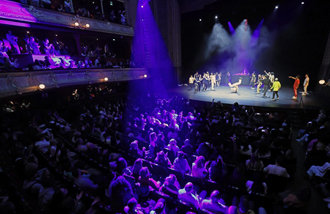Preferential admissions for underprivileged students
Preferential admissions for underprivileged students
Posted March. 09, 2013 01:51,
Preferential admissions programs for underprivileged students are being expanded in Korea. The system originated from the Affirmative Action program of the U.S. In 1960s in America, the average educational level of a black student was just two-thirds that of a white student. When the civil rights movement led by Rosa Parks and Martin Luther King was spreading, U.S. universities adopted preferential admissions programs that sought to help disadvantaged students. It is an open secret that U.S. President Barack Obama and First Lady Michelle Obama directly benefited from such a program.
In Korea, the regionally balanced admission program introduced by Seoul National University in 2005 can be considered the country`s first version of Affirmative Action. The school`s goal was to give more opportunities to students from areas with inferior educational environments and to accept students from different socio-economic backgrounds. Many faculty members opposed the move, arguing that it would negatively affect the academic standards of Korea`s top university. The system, however, is now believed to have taken root successfully.
Certain middle schools with the autonomy to select students have also adopted preferential admissions programs. They tend to charge higher tuition than regular schools while offering slots and scholarships specifically for underprivileged students. The system came under fire after children from affluent families were admitted through the program. In January, the grandson of Samsung Group Chairman Lee Kun-hee was accepted to the prestigious Younghoon International Middle School as the child of a single-parent family. The son of Jeon Yeo-ok, a former lawmaker of the Grand National Party (now the ruling Saenuri Party), was also admitted to a prestigious high school. Among the parents of the 16 students accepted to Younghoon through the non-economic special admissions program, two were medical doctors, one a lawyer and three entrepreneurs.
The non-economic preferential admissions program poses a number of problems. It works fine with the children of veterans, pro-democracy fighters and North Korean defectors, but not with those from single-parent families with three or more children. Students whose parents are divorced cannot receive preferential consideration in many countries where divorce and remarriage are common. Families with three or more children are likely to be in the upper class. Despite its good intentions, the system is run abnormally due to severe income gaps. The admissions programs of independent private high schools for economically underprivileged students often fail to fill the slots because such students tend to be reluctant to attend for fear of being alienated or bullied by peers from rich families. Korean society is casting a dark shadow over the preferential admissions system.
Editorial Writer Chung Sung-hee (shchung@donga.com)







